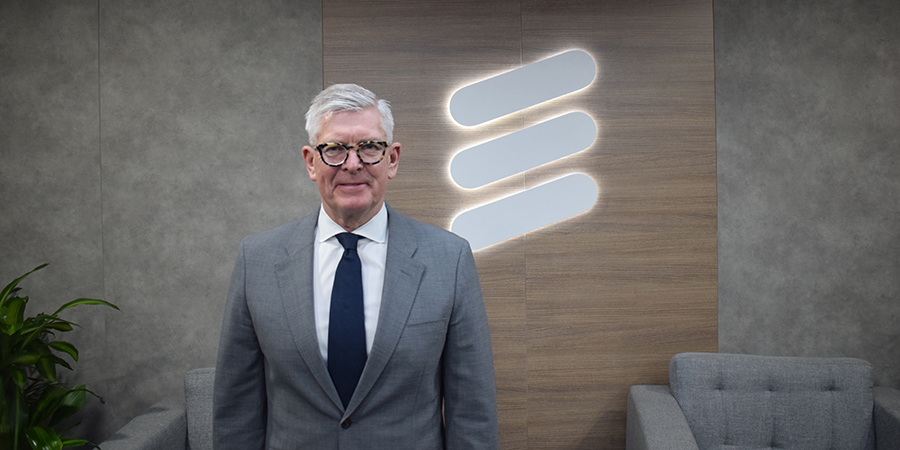At LEAP 2024, Telecom Review had the privilege of interviewing Börje Ekholm, President and CEO of the Ericsson Group, whereby the company’s advancement and the significance of upholding technological leadership was discussed.
How does Ericsson ensure its position as a leader in innovation and technology within the rapidly evolving global telecom industry, while also maintaining the competitiveness of its products and services worldwide?
For us, the core of our company and our competitiveness lies in technological leadership. Thus, nearly 20% of our sales are allocated to research and development (R&D) to ensure we offer the most competitive solutions. This investment is not only geared towards enhancing quality, cost-effectiveness, and sustainability but also towards developing energy-efficient products, which are crucial. Our competitiveness hinges on our commitment to R&D and our ability to invest in it
How do you envision Ericsson advancing under your leadership in terms of both corporate growth and innovation driven by customer needs?
I believe our objective is to pursue a strategy aimed at maintaining leadership in our mobile networks. We achieve this by investing in programmable high-performance networks and venturing into the enterprise field. There are two main avenues we're exploring for this. Firstly, we aim to expand the market for cellular communication, focusing on enterprise networks, dedicated networks, and campuses. Secondly, we're pioneering a unique initiative known as the global network platform. This platform enables us to expose the network's capabilities through a C++ platform or a global network platform to developers worldwide. These developers can then create applications that leverage unique network features such as latency, location, security, speed, and on-demand services.
What are the key focus areas for Ericsson's business development in the upcoming period?
We will persist in investing in our networks to ensure that they lead in what we term as the 'open world.' This entails doubling down on open architecture because we firmly believe it will result in networks that are programmable and easily accessible. We intend to integrate this approach with our global network platform, enabling us to expose the network's capabilities to developers. This will pave the way for the development of new types of applications that have yet to be seen.
With the widespread adoption of 5G technology around the world, what are Ericsson's perspectives on the potential emergence of 6G technology?
Of course, it's inevitable, but it's truly a concept for 2030. Currently, there's excessive emphasis on the realities of 6G when we're still at an early stage in the 5G rollout. The architecture of 5G is cloud-based, very akin to what we anticipate for 6G. Therefore, customers who are at the forefront of deploying 5G now will find themselves in a favorable position for 6G, should it emerge within the next five to seven years.
What role does the Network API play in accelerating innovation on the network as a global platform?
We firmly believe that network APIs are crucial. The network itself possesses numerous unique features such as low latency, high speed, and location awareness. By exposing these capabilities to developers, they can integrate them into applications. Consider, for instance, enhanced video streaming performance or dedicated networks tailored for security or indoor positioning, facilitating seamless transactions like payments. These are the types of functionalities we're introducing to the market as network APIs. There's a significant collaborative effort within the global operator community focused on advancing APIs and open gateways, and we're actively participating in this initiative.
Following Ericsson’s participation in LEAP 2024, what specific strategies or initiatives does the group plan to implement to strengthen its foothold and leverage opportunities in the Middle Eastern market?
First and foremost, this event holds significant importance for us. It marks our third appearance at LEAP, and we're genuinely excited about it. What makes this occasion particularly noteworthy is that this region stands at the forefront of 5G adoption, acting as an early adopter. We're beginning to witness a second wave of adoption, which underscores the region's importance to us. Not only is it a sizable market, but it's also a technology-leading market. This drives our commitment to delivering the best solutions possible to the market, which is why we're so enthusiastic about being here. Specifically, we're excited about the Saudi Arabia 2030 vision, which plays a pivotal role in driving the ecosystem forward, and we're eager to contribute to it.
How does Ericsson contribute to Saudi Arabia's digital transformation journey, and how does it align with the goals of Vision 2030?
I believe that the pivotal aspect of any initiative aimed at digitizing a country and its economy is connectivity. Often overlooked, it's actually a fundamental piece of the puzzle. This is precisely where we play our most significant role, collaborating closely with leading Saudi telecom operators to establish a robust network infrastructure. This infrastructure will prove indispensable in shaping the future landscape.









